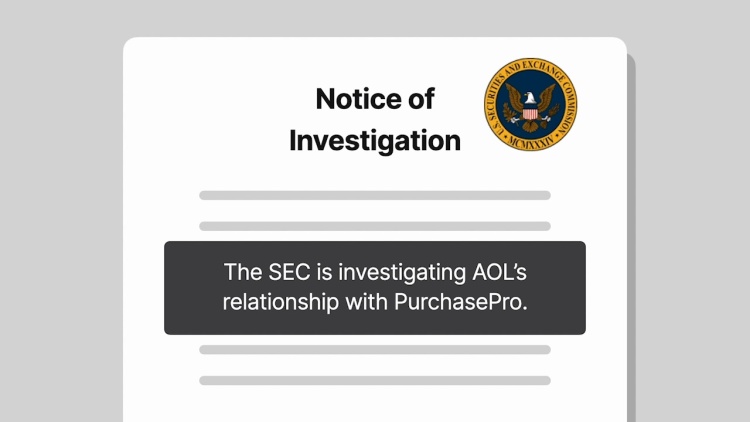In re Grand Jury Subpoena: Under Seal
United States Court of Appeals for the Fourth Circuit
415 F.3d 333 (2005)
- Written by Rose VanHofwegen, JD
Facts
In March 2001, AOL Time Warner (AOL) retained law firm Wilmer, Cutler & Pickering (Wilmer) to assist in an internal investigation into AOL’s relationship with PurchasePro, Inc. AOL’s general counsel and Wilmer attorneys interviewed business-affairs manager Kent Wakeford and two other AOL employees multiple times over the next several months. AOL’s general counsel Randall Boe told each employee that the conversations were privileged but that the privilege belonged to AOL and AOL could waive it. Boe told the employees they could hire personal attorneys at AOL’s expense. However, Boe and the Wilmer attorneys also said they could represent the employees “as long as no conflict appear[ed].” In November 2001, the Securities Exchange Commission (SEC) began investigating AOL and PurchasePro’s relationship. Wakeford retained personal counsel and entered a common-interest agreement with AOL that acknowledged the two representations concerned common interests and allowed the attorneys to share information between them without waiving privilege. When Wakeford testified before the SEC, his attorney asserted that the internal interviews were privileged, and Wakeford said he thought the investigating attorneys represented him personally. Another interviewed employee who testified before the SEC asserted the same privilege. But when AOL’s records of the interviews were subpoenaed, AOL agreed to waive the privilege and produce them. The employees’ personal attorneys moved to quash the subpoena on privilege grounds, asserting the employees had an attorney-client relationship at the time of the interviews. Wakeford also asserted privilege under the common-interest rule. The trial court refused to quash the subpoena, reasoning that the investigating attorneys represented AOL and not the employees individually, who had been warned the interviewing attorneys did not represent them. Specifically, the court found that telling someone “we can represent you” is not the same as “we do represent you.” The court also found Wakeford entered the common-interest agreement after the interviews took place. The employees appealed.
Rule of Law
Issue
Holding and Reasoning (Wilson, J.)
What to do next…
Here's why 907,000 law students have relied on our case briefs:
- Written by law professors and practitioners, not other law students. 47,100 briefs, keyed to 996 casebooks. Top-notch customer support.
- The right amount of information, includes the facts, issues, rule of law, holding and reasoning, and any concurrences and dissents.
- Access in your classes, works on your mobile and tablet. Massive library of related video lessons and high quality multiple-choice questions.
- Easy to use, uniform format for every case brief. Written in plain English, not in legalese. Our briefs summarize and simplify; they don’t just repeat the court’s language.







